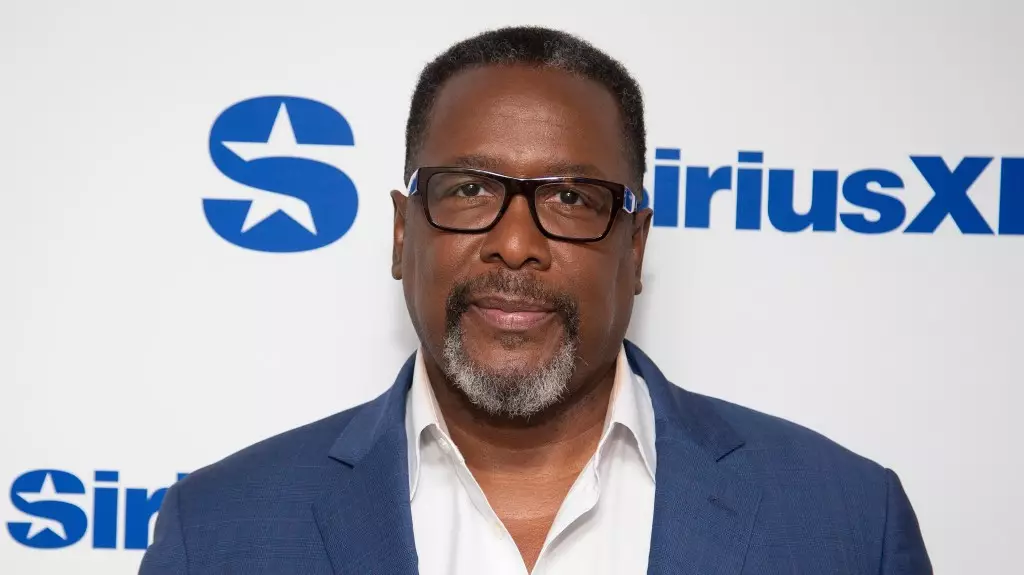The World Series is often hailed as the pinnacle of professional baseball, a showcase of talent, rivalry, and sportsmanship. Yet, the atmosphere surrounding these games can sometimes be overshadowed by unruly fan behavior. A recent incident involving actor Wendell Pierce shines a light on the darker side of sports culture, one where passion morphs into hostility. Despite being a fan of both the Los Angeles Dodgers and New York Yankees, Pierce’s experience at Game 5 of the World Series was tainted by rowdiness, prompting him to leave the stadium before the game concluded.
Pierce, known for his roles in acclaimed series such as *The Wire* and *Suits,* entered Yankee Stadium filled with enthusiasm, albeit donning a Yankees cap. His intention was simple: to celebrate the sporting spirit with fellow fans, regardless of their affiliations. However, within hours, this hopeful spectacle turned sour. Adorned in Yankee gear as a gesture of goodwill—an embodiment of the home-friendly ethos—his interactions with other fans quickly escalated into a hostile exchange.
The actor’s initial excitement transformed into disbelief as he encountered aggressive behavior from zealous Dodgers supporters. Rather than celebrating competition, he found himself embroiled in a tumultuous atmosphere where the enjoyment of the game was dwarfed by the aggression of the crowd. He later expressed this disillusionment on social media, stating that “unruly, obnoxious people can ruin everything.” This revelation resonates profoundly, emphasizing that the essence of sports stems from collective enjoyment rather than division or animosity.
In the age of social media, athletes and fans alike are more connected than ever. Following his frustrating experience, Pierce took to X (formerly Twitter) to voice his disappointment, highlighting the juxtaposition of the competition and the behavior of certain fans. His frustration isn’t isolated; it reflects a growing concern about sportsmanship diminishing in an era where fan interactions can often spiral into physical confrontations.
The reaction from the fanbase and the media spotlight on behavior at Yankees Stadium further accentuates this issue. Such instances of misconduct not only disillusion fans like Pierce but also raise questions about the overall environment within sports culture. Are we witnessing a shift from celebratory competition to an arena defined by aggression? The unfortunate incidents he referenced, including the groundwork of hostility that marred previous games, suggest that negative fan engagement is becoming a notable topic of discussion.
Pierce lamented that his experience had overshadowed the game, stating, “all I remember will be the obnoxious fans.” This sentiment is particularly distressing for players like Dodgers outfielder Mookie Betts, who has faced adversity both from rival fans and within the game itself. The emotional toll such experiences can take on athletes is profound; when the sanctity of sports is compromised by the behavior of its audience, it can detract from the players’ accomplishments and artistry.
In a world where the competitive spirit should thrive, the overpowering noise of discontent and disregard can leave lasting impressions. While passionate fandom is the lifeblood of sports, aggressive behavior at games can lead to alienation, loss of enjoyment, and ultimately diminish the quality of the experience for everyone involved.
Wendell Pierce’s experience is a microcosm of a larger dialogue surrounding sportsmanship in professional athletics. It’s a stark reminder of how crucial it is for fans to recognize that their behavior impacts not only the enjoyment of fellow supporters but also the athletes who strive to entertain.
As sports continue to serve as a platform for collective engagement and rivalry, it is essential to remember that at the heart of fandom lies respect—respect for the game, respect for each other, and most importantly, respect for the athletes who dedicate their lives to this craft. Only through habits of good sportsmanship can we ensure that the spirit of the game remains untarnished, fostering an atmosphere where competition thrives and enjoyment reigns supreme.


Leave a Reply